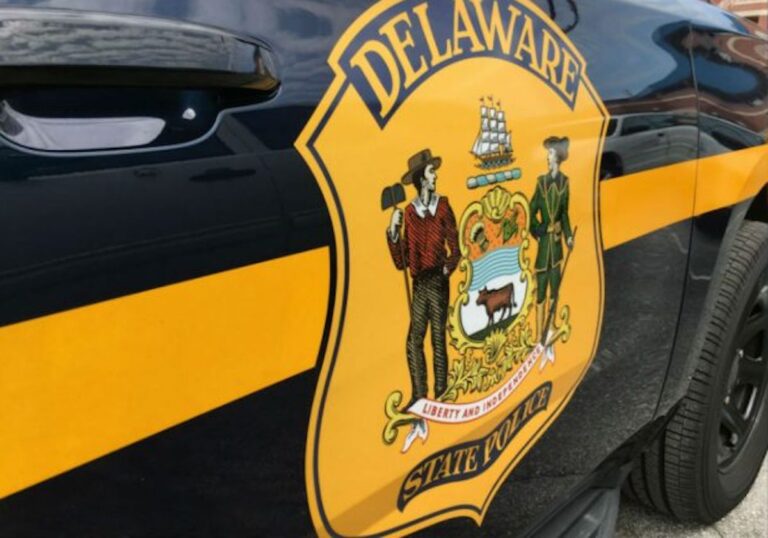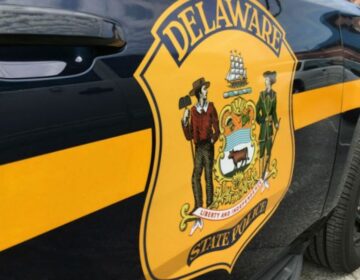Delaware lawmakers make police kneeholds, chokeholds a felony
The bill has an exemption that lets police use the tactic if they “reasonably believe” they or a civilian is in danger of serious injury or death.

A Delaware State Police vehicle is seen in a file photo. (Mark Eichmann/WHYY News)
The use of chokeholds and kneeholds by police has been widely condemned in the wake of George Floyd’s death at the hands of Minneapolis officers a month ago.
Now Delaware has joined a growing list of states and localities to ban the practice, and made it a felony, with a bill that just cleared the legislature.
Delaware cops who use a chokehold or kneehold to detain a suspect would be subject to arrest for aggravated strangulation.
The crime would be classified as a Class D violent felony punishable by up to 2 ½ years in prison, but if the person choked suffers serious injury or death, the officer could be charged with a Class C felony and face up to 15 years behind bars.
The bill passed unanimously in the House and 16-5 in the Senate, and Gov. John Carney said he will sign it. The measure is the first of a series of bills the Legislative Black Caucus proposed this month to pass.
State. Sen. Tizzy Lockman, a Democrat and Black caucus member whose district includes part of Wilmington, said prohibiting chokeholds and kneeholds “is really the least we can do as a General Assembly to respond to this moment.
“What this bill does is hold us to a standard that we claim to hold for ourselves,” Lockman said. “When you are involved in law enforcement activities you should not be doing something inhuman to another human being.”
Lockman said the bill is also “mindful of the safety of our officers” by giving them the right to use chokeholds and kneeholds if they “reasonably believe” they are or a civilian are in danger of serious injury or death.
State Rep. Nnamdi Chukwuocha, another member of the caucus, was the bill’s House sponsor. He said the ban “is about restoring public trust, and it is about saving lives.”
State police Lt. Thomas Brackin, president of the Delaware State Troopers Association, said the union did not support the bill but recognized that the ongoing protests against police brutality and racism made its passage inevitable.
Brackin stressed that the state police, the largest force in Delaware, doesn’t use chokeholds or kneeholds to arrest a suspect.
“What occurred in Minneapolis was disgusting,’’ Brackin said. “It was clearly outside the bounds of training. Outside the bounds of anything any one of us would think is remotely correct. We don’t do that.”
WHYY is your source for fact-based, in-depth journalism and information. As a nonprofit organization, we rely on financial support from readers like you. Please give today.






